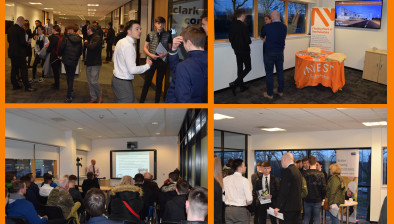Mixed response to Migration Advisory Committee immigration report
Recommendations for a new single skills-based immigration system have been welcomed by the Construction Industry Training Board (CITB) but condemned by the Royal Institute of British Architects (RIBA).

Yesterday, the Migration Advisory Committee (MAC) reported on its recommendations for the new single skills-based immigration system which will come into effect following the Brexit implementation period.
Responding to the report, CITB said it was pleased that the MAC has listened to the construction industry while RIBA argued the report “fundamentally misunderstands the architecture profession”.
Over the last three years, CITB has annually researched, and presented to government, the views of construction employers, recruiters and non-UK born workers on the possible impact of proposed visa restrictions following the UK’s departure from the EU.
CITB’s latest migration report, published in October, revealed that employers wanted greater simplicity and a breathing space on planned visa restrictions.
CITB strategy and policy director, Steve Radley, said: “It is good to see these recommendations, particularly the lower salary threshold for the general ‘high-skilled’ visa and the inclusion of more construction occupations that will benefit from this introduction.
“By expanding the Tier 2 visa route to include more skills, such as carpenters and plasterers, painters and decorators and supervisors, and by reducing the salary threshold from £30k to £25.6k, the MAC has listened to the views of employers and federations. The MAC’s recommendations will give the industry the breathing space to modernise and to grow more of its own workforce and to help deliver on the expanded public investment programme and ambitions for new homes that the government will announce in March.
“We look forward to the government’s response to these recommendations and to working with it on how its plans will operate and on how we can jointly address the industry’s skills challenges.
“Migrant workers have long played a key role in the UK’s construction sector. The MAC recommendations will help ensure that employers can continue to benefit from the vital skills provided by migrants.”
Alan Vallance, RIBA CEO, said: “The Migration Advisory Committee’s report fundamentally misunderstands the architecture profession. With training to become an architect taking a minimum of seven years, the committee’s proposals will simply not work for the sector.
“Increasing the salary threshold to almost £35,000 will severely impact smaller practices and those outside of London keen to benefit from international skills; and the proposed ‘new entrants’ route would exclude swathes of internationally-qualified architects who are integral to the success of the sector and economy.
“Ensuring that the UK continues to attract and retain global talent is absolutely critical, and sadly these proposals fall short of providing the reassurance needed. We will continue to press government for an immigration system that works for UK architects and architecture.”
Mr Berry added: “The temporary visa route remains a concern, however. This route will need to have a path to permanent settlement otherwise many workers will simply choose to work elsewhere. The government should consider giving temporary migrants the opportunity to complete training and settle on a skilled visa while remaining in the UK.”














